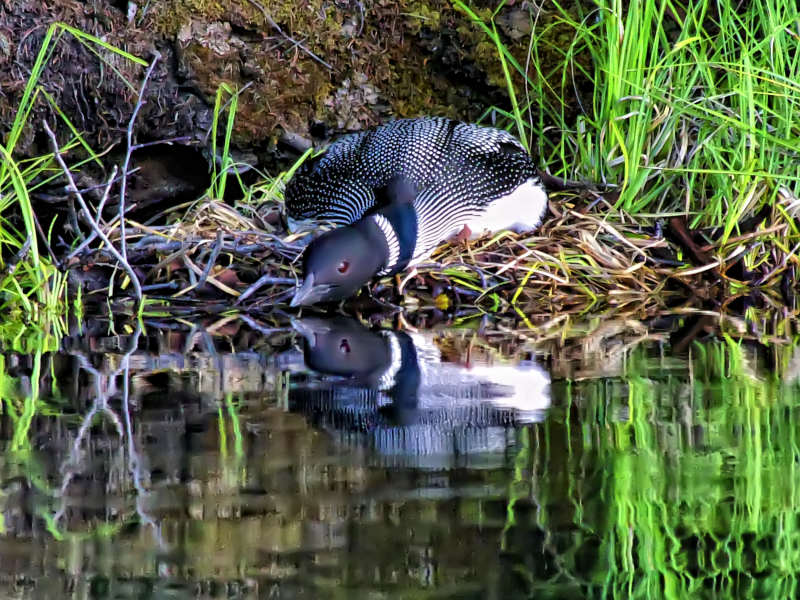Loon Watch
Each year, Bridge Lake is home to families of ‘gavia immer’, the common loon. There is nothing quite as evocative of the spirit of the northern lakes as the call of the loon.

The survival of loons has always been tenuous. Typically only two eggs are laid in a nest that is vulnerable to natural predators (dogs, fox, mink, gulls, eagles ...) and wave action (storms, motor boats ...). Chicks that successfully hatch from the eggs often fall victim to predators or their own aggressive siblings. Loss of suitable shoreline habitat adds to the challenge for nesting pairs.
We are encouraging all users of our lakes to boat responsibly and protect the shoreline. To learn how you can help to protect our loons read the following short information sheet: Loon Friendly Lakes or go to the beautiful web site of the Michigan Loon Preservation Association
The Canadian Lakes Loon Survey began in Ontario in 1981. The intent is to track trends in loon populations and learn more about human impact on those populations. Over 1000 volunteers across Canada contribute to the survey database by filing reports once a month over the summer indicating the number of loons on the lake, the number of breeding pairs, the number of successful hatchings and the number of surviving young. Since 2009, volunteers are conducting the survey on Bridge Lake.
In 2023 the lake produced 8 loon chicks of which 7 survived. The maximum number of observed adults was higher than last year’s, but as it includes a traveling group of 6, the population probably stayed more or less the same. The observed number of mated pairs was down by 4. Of the three man-made loon platforms on the lake, the one in Centennial Bay was successfully used again and it produced 2 chicks this year.
- Maximum number of adults: 62
- Mated pairs: 16
- Number of hatched chicks: 8
- Number of surviving large young: 7
Note: In 2020 the count was partially suspended due to Covid.